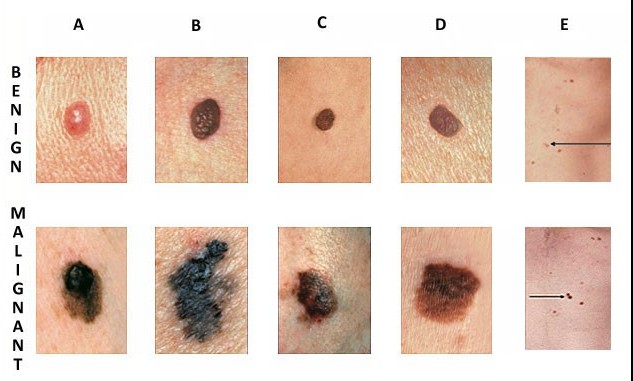Sources and Science

We would not be able to get started on this project if it wasn’t for the wealth of information from research all around the world. Thank you everyone for sharing your research, images and presentations!
ISIC Archive
The International Skin Imaging Collaboration is an academia-industry partnership designed to facilitate digital skin imaging technologies to help reduce melanoma mortality. The current era of smart-phone technology presents an exciting opportunity for digital photography as an aid to early diagnosis of melanoma.
Nature.com
Nature is an English. It was ranked the world's most cited scientific journal by the Science Edition, making it one of the world's top academic journals. It is one of the few remaining academic journals that publishes original research across a wide range of scientific fields. Nature has published an article on “Dermatologist-level classification of skin cancer with deep neural networks” giving us hope that AI can be trained to do visual detection of skin cancer.
Skin Cancer Foundation
The Skin Cancer Foundation has set the standard for educating the public and the medical profession about skin cancer, its prevention by means of sun protection, the need for early detection, and prompt, effective treatment. It is the only international organization devoted solely to combating the world’s most common cancer, now occurring at epidemic levels. The Foundation has always recommended following a complete sun protection regimen that includes seeking shade and covering up with clothing, including a wide-brimmed hat and UV-blocking sunglasses, in addition to daily sunscreen use
University of Iowa
University of Iowa has put toget a wonderful database of skin disease images, which helped out AI engine get a diverse dataset of various skin conditions. Without these images it would be impossible to get detailed classification.
Stanford University
The research for the Nature article was done at Stanford by some remarkable scientists from multiple disciplines. Their statement and findings was a ground breaking result that set of a lot of hope and consequent research "An artificial intelligence trained to classify images of skin lesions as benign lesions or malignant skin cancers achieves the accuracy of board-certified dermatologists."
